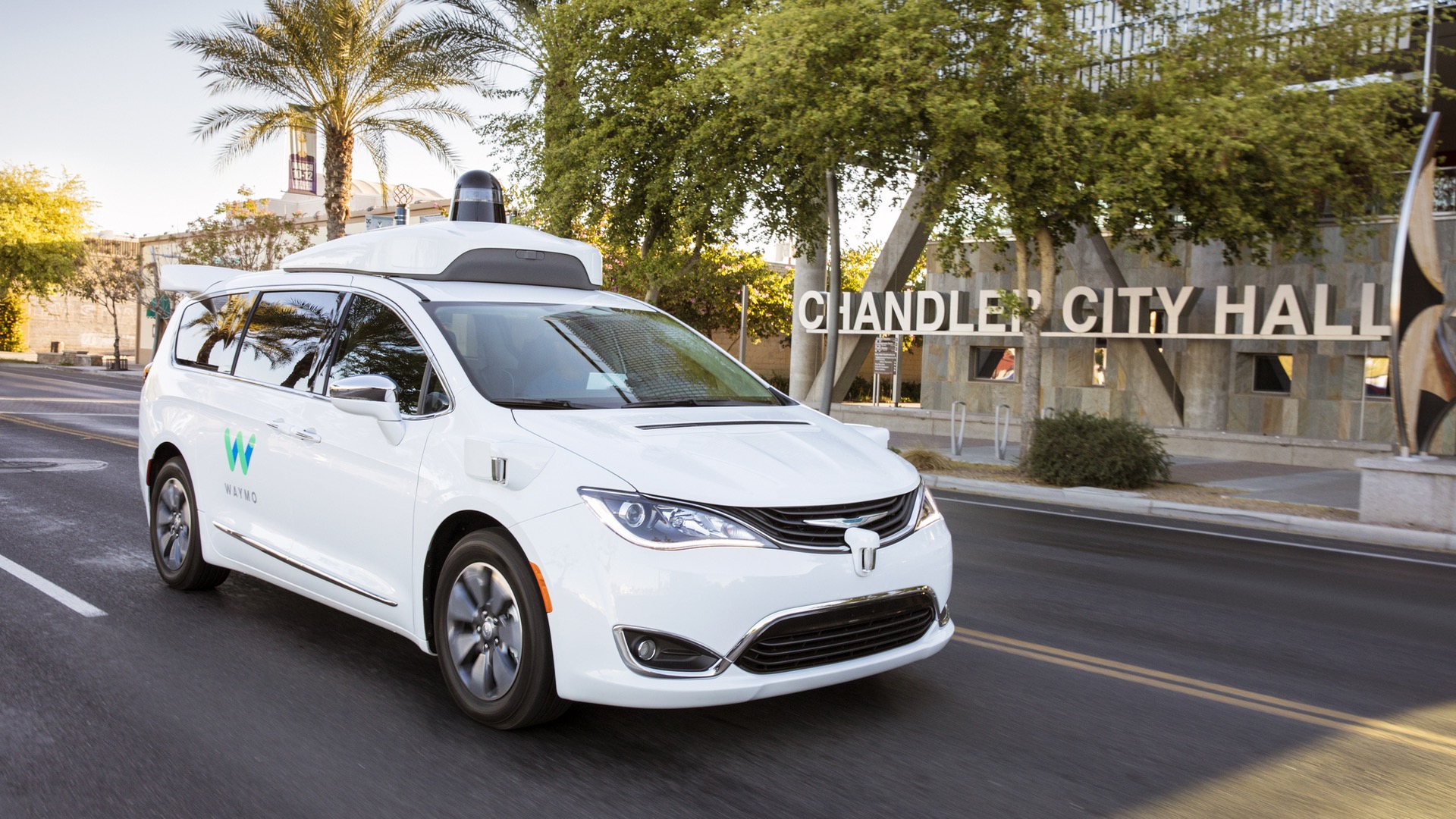

Waymo’s fleet of semi-autonomous Chrysler Pacificas has been traversing the roads of Chandler, Arizona, for quite some time now. One might think that the residents have gotten used to the bright white minivans roaming the roads, easily identified by the blue-green logo on their doors and large LiDAR domes nested quietly on the roof, but CNBC reports otherwise. Residents are ready to give the vans the boot.
One of the largest frustrations expressed by the residents is the inability for the vehicles to cross a standard T-intersection. One is reportedly nearby Waymo headquarters and several drivers have repeatedly brought their concerns to light.
A woman brought up the vehicle’s inability to make a right turn at the intersection, stating that she had to make an abrupt stop due to the Pacifica’s hesitation to make a right turn. Another resident stated that he had begun to simply (and illegally) drive around the vehicles instead of waiting for them to process the data and take action based on its surroundings. A video posted to YouTube only one week ago corroborates the resident’s claims.

Though Waymo is typically viewed as one of the most advanced companies in the self-driving space, it often stays in the dark compared to more front-and-center companies that are all in various stages of exploring semi-autonomous driving, such as Uber and Tesla. Still, the technology is far from perfect and hesitation in crucial moments can lead to unpredictable scenarios from other motorists; autonomy isn’t ready to be autonomous.
Waymo seemingly accepts this, stating that its vehicles are “continually learning” despite having logged more than 9 million miles. The company still staffs a real-life person behind the wheel of each car in case something goes awry (part of the learning process, no doubt); however, this hasn’t eased the frustration of some locals. Others, like a local CBS investigative reporter, disagree with the assertion of these individuals, stating that he hasn’t had a single complaint about the vehicles.
“Waymo was founded on a mission to make our roads safer, and that’s why we built a cautious and defensive driver,” a Waymo spokesperson told The Drive via email. “The way to responsibly deploy our fully driverless technology is to robustly test and validate in a geo-fenced territory that grows over time. Anything less than that undermines safety and the promise of this technology.”
Waymo believes that the problem at its core may be the communal misunderstanding of autonomy development as a whole. Part of perfecting any technology is trial and error, and the latter is something which Waymo is trying to avoid by prioritizing safety as a core functionality of its platform. All of the big players, Waymo included, will ease through the “terrible twos” of semi-autonomy before the systems become mature enough to be regarded as safe and accurate. Waymo’s recent deal with Jaguar for a fleet of 20,000 I-Pace luxury SUVs will help to expand its footprint and ability to exponentially increase testing.